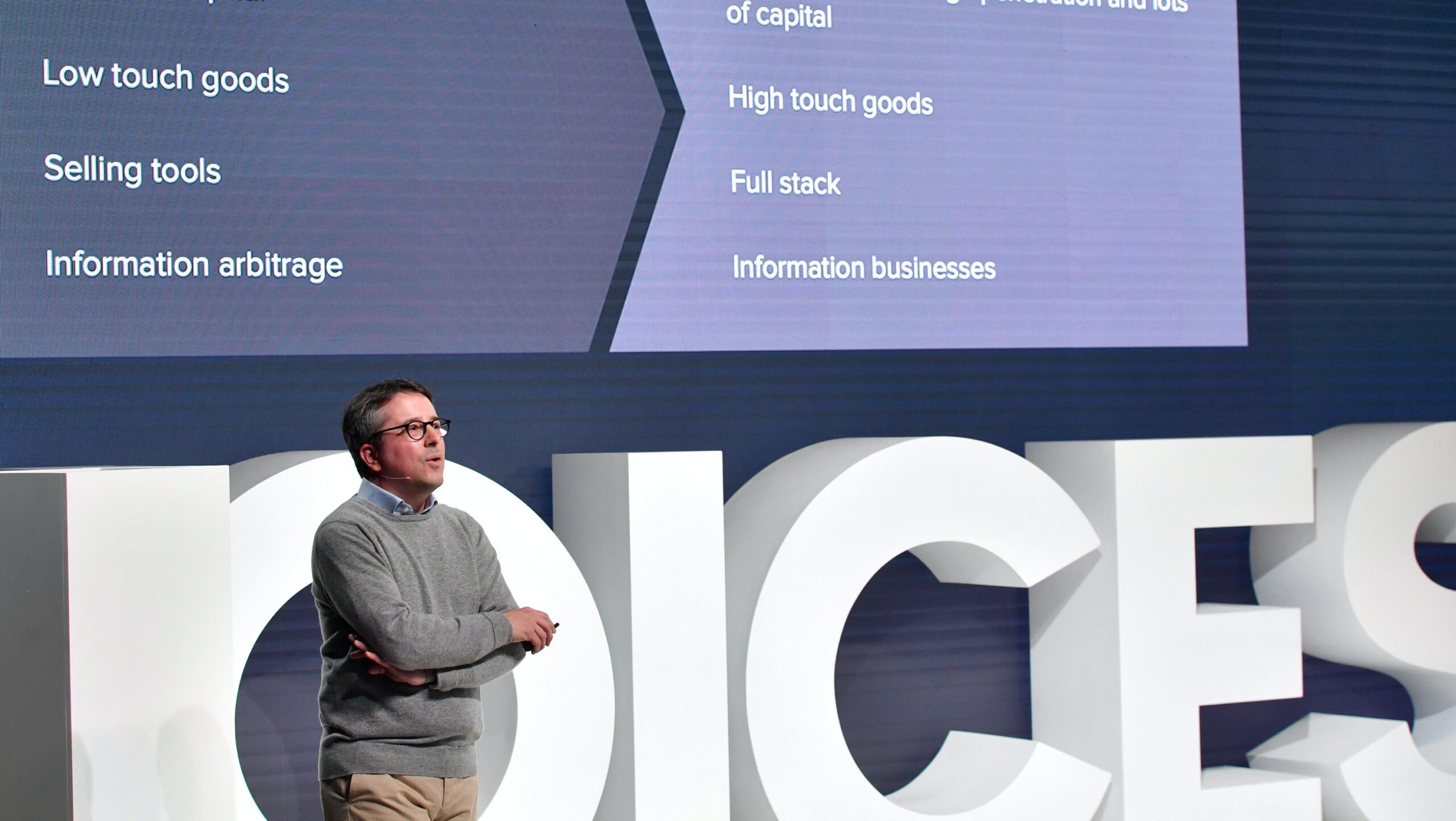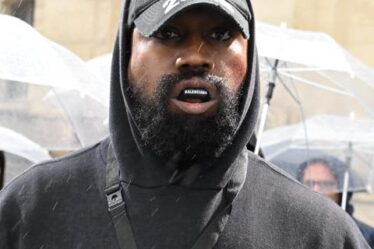
OXFORDSHIRE, United Kingdom — “We are at the end of the beginning,” said Benedict Evans, an author and partner at Silicon Valley venture capitalist firm Andreessen Horowitz, presenting a brief history of the internet thus far and what’s coming next. Close to three quarters of adults on earth now have internet access and a smartphone and the rest of the world would have one in the coming few years, he said.
Indeed, the spread of computing (and spending power) are following the same path as industrialisation — reaching from the West to China, India and beyond — radically expanding the total addressable digital market, continued Evans, speaking at VOICES, BoF’s annual gathering for big thinkers, in partnership with QIC Global Real Estate.
And yet much of the world’s economy has yet to be transformed by software and the internet. For example, e-commerce is still only a small fraction of the $25 trillion global retail business. “Most people are online but most of the money is not,” he noted. “But as it moves, industries will change.”
Software is eating the world, to use the formula coined by Andreessen Horowitz founder Marc Andreessen. And what began with business models that presumed low internet penetration, low speeds, little consumer readiness and little capital is now giving birth to fundamentally different kinds of businesses that are completely changing the industries they are disrupting.
Most people are online but most of the money is not.
Evans cited the example of Tesla, whose electric vehicles are “eating cars” — not just outselling rivals like Mercedes and Lexus in the US, but fundamentally changing the nature of automobiles. “Tesla isn’t interesting because of what it does to gasoline, but because of what it does to the car,” he said, painting a future filled with new self-driving vehicles types. Similarly, Doordash delivers hot meals to your door, fundamentally changing the notion of a restaurant, he said.
Looking ahead, Evans said the fundamental building blocks of the internet were evolving, opening new opportunities for businesses of all kinds, including fashion and retail companies. Specifically, he identified machine learning as providing new ways to examine meaning, intent and preference. For retail, this will spell a fundamental shift “from retail as logistics to retail as tastemaker” creating new pathways for selling high-touch goods like fashion, he predicted.
“The internet has thus far meant you can buy anything that you can in New York City, but not shop the way you can in New York City,” said Evans. And every change in the retail model changes not only the way we shop but what gets bought. “When you change the buying journey, people don’t just buy the same stuff, they buy different things.”
To learn more about VOICES, BoF’s annual gathering for big thinkers, visit our VOICES website, where you can find all the details on our invitation-only global gathering, in partnership with QIC Global Real Estate.



